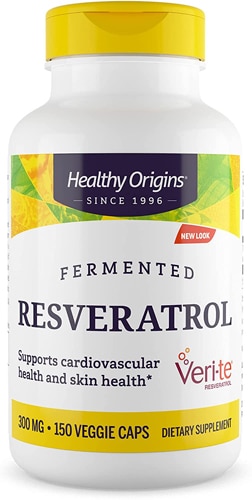[vc_row][vc_column][vc_column_text]Consistent exercise is vital to a healthy aging process both now and as you get older.
As the
Centers for Disease Control and Prevention (CDC) recommends, senior adults over the age of 65 with no limiting medical issues or mobility restrictions should aim for at least 150 minutes per week of moderate aerobic activity.
However, you can help fight the negative effects of aging by working out before the age of 65. Here’s how fitness can help you stay healthy, longer, so you can still enjoy 30 minutes of activity five days a week well into your 60s.

Exercise preserves muscle strength and bone density
Osteosarcopenia, the decline in muscle mass and bone density, affects as many as 37 percent of adults at least 65 years old, according to researchers from the
University of Melbourne, Australia. The risk factors for this condition escalate further as a person continues to age, which can also increase the risk of bone fractures, other injuries or even mortality.
One of the main causes associated with osteosarcopenia is insufficient activity levels, but consistent exercise (specifically, balance and resistance training) will help to protect against muscle and bone loss. As the
Journal of Environmental Research and Public Health indicates, exercise can activate cells in the skeletal muscles to secrete certain proteins which help the bones and muscles to recover and regenerate. As a result, you will be stronger, more resilient, and less prone to injuries as the body ages.
Exercise supports immunity from respiratory illness
Aging causes the lungs to deteriorate in both structure and function which can lead to chronic respiratory issues, suggests the
Annual Review of Physiology Journal. Over time, lungs tend to lose volume and elasticity, causing inflammation of the airways and making it difficult to breathe. That’s why senior adults are often susceptible to COPD, bronchitis, emphysema, pneumonia, pulmonary disease, acute respiratory distress syndrome and COVID-19.
Research also shows exercise can help boost immune function in the respiratory tract.
Physical activities can increase immune cells in the bloodstream, tissues and organs. This boosts antioxidant and anti-inflammatory properties in the lungs that fight off oxidative stress and viral pathogens that cause COVID-19 or other respiratory infections.
Healthier lung function from exercise can also result in less severe symptoms if you do contract one of these illnesses.
Exercise can protect the brain from cognitive decline
Mental health outcomes and cognitive performance can also be improved with regular exercise. Movements like yoga or Tai chi, which reinforce a mind-body connection, are most effective in this area. Senior adults who exercise five to seven times a week tend to have sharper executive brain functions such as learning, memory, verbal skills, processing speed, attention and flexible thinking, according to the
Journal of Aging Research.
Exercise can also help alleviate depression, anxiety or other mood disorders, the research continues. In some cases, a consistent exercise regimen could even help minimize the risk of Alzheimer’s or dementia in aging populations.
As this journal goes on to point out, senior adults with active lifestyles can reduce their chances of developing Alzheimer’s or dementia by 45 percent and 28 percent, respectively. So in order to strengthen overall brain function and protect yourself from cognitive decline, frequent exercise needs to be part of your routine.
Exercise helps to control DNA structural modifications
Telomeres are the end caps on chromosomes and prevent the loss of DNA when cells split and multiply. However, telomeres become shorter in the aging process, which inhibits cellular division over time, according to
Frontiers in Genetics. This is a problem because when cells no longer split, new cells won’t form, and DNA damage will occur.
Impaired or weak DNA strands can make the body more vulnerable to oxidative stress and systemic inflammation, Frontiers explains. Gradually, this can lead to serious chronic medical issues such as metabolic syndrome, high blood pressure or cholesterol, diabetes, stroke, cardiovascular disease or even certain cancers.
Fortunately, there’s a correlation between aerobic activities and optimal telomere length. Exercise can promote an extra layer of protection against chronic illness as you grow older.
Maintain a smooth and healthy aging process with consistent exercise
Consistent weekly exercise will help you maintain both physical and mental health as you grow older. This, in turn, can have a positive effect on your overall quality of life for many years to come. Even if all you can commit to is a brisk-pace walk for 30 minutes a day, the benefits of exercise cannot be overstated.[/vc_column_text][/vc_column][/vc_row][vc_row][vc_column][vc_text_separator title="Featured Products" border_width="2"][vc_row_inner equal_height="yes" content_placement="middle" gap="35"][vc_column_inner width="1/3"][vc_single_image image="156769" img_size="full" alignment="center" onclick="custom_link" img_link_target="_blank" css=".vc_custom_1640192830254{padding-right: 7% !important;padding-left: 7% !important;}" link="https://www.vitacost.com/life-extension-optimized-nad-cell-regenerator-and-resveratrol"][/vc_column_inner][vc_column_inner width="1/3"][vc_single_image image="156768" img_size="full" alignment="center" onclick="custom_link" img_link_target="_blank" css=".vc_custom_1640192874829{padding-right: 7% !important;padding-left: 7% !important;}" link="https://www.vitacost.com/life-extension-optimized-nad-cell-regenerator-and-resveratrol"][/vc_column_inner][vc_column_inner width="1/3"][vc_single_image image="156770" img_size="full" alignment="center" onclick="custom_link" img_link_target="_blank" css=".vc_custom_1640192964403{padding-right: 7% !important;padding-left: 7% !important;}" link="https://www.vitacost.com/natures-plus-ageloss-rejuvabolic-resveratrol-anti-aging-complex-90-bi-layered-tablets"][/vc_column_inner][/vc_row_inner][/vc_column][/vc_row]




